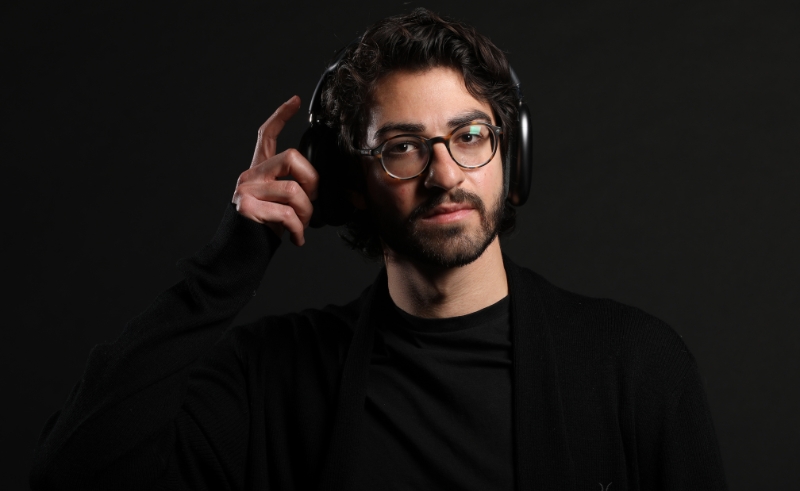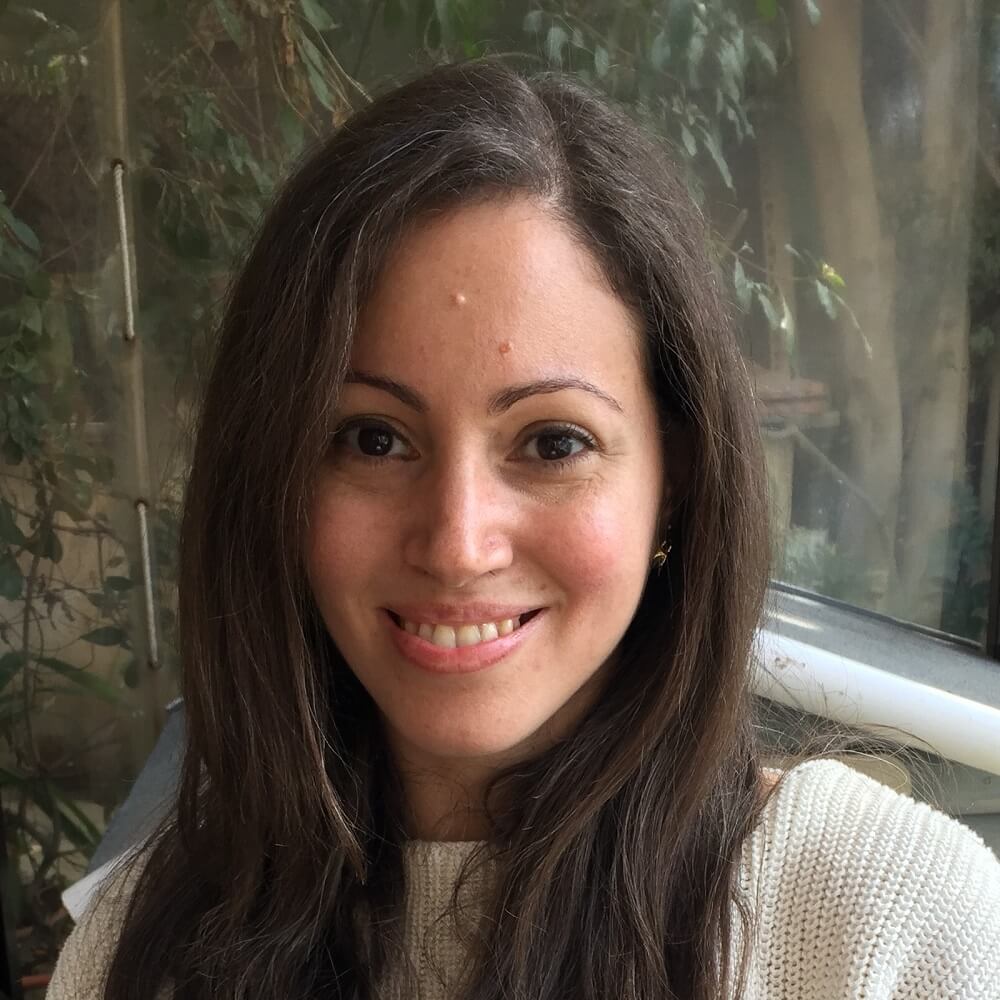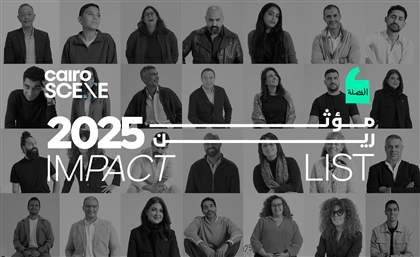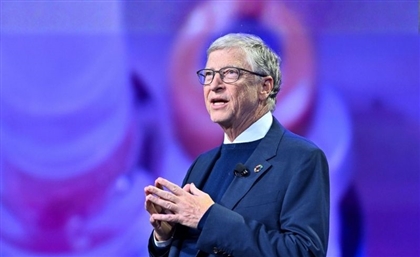How UAE Startup Podeo is Revolutionising Podcasts in the Middle East
Looking to expand beyond the region, Podeo is planning to enter key markets in Asia and Africa soon.

Dubai-based podcast platform Podeo is disrupting the region’s audio landscape. It is empowering content creators and providing them with seamless distribution, global reach, and an opportunity to have their voices heard - all on a single platform. Launched in 2020 by Stefano Fallaha, Podeo gives content creators all the necessary tools to create, publish, and monetize their podcasts on diverse platforms such as Apple, Google, Spotify, YouTube and Anghami to millions of listeners across the globe.
A young entrepreneur, Fallaha first thought of creating an audio platform about seven years ago, when he was still studying in Beirut. At the time, WhatsApp was launching its voice notes feature, which quickly took off in the region. "I saw a massive untapped opportunity in audio and podcasts and decided to go all in,” Stefano Fallaha, Founder and CEO of Podeo, tells StartupScene. "Empowering voices, democratising the narrative and amplifying untold stories to billions of ears across the globe was the mission that kept us going."
Today, Podeo has an estimated 50,000 podcasters on its platform, and through its strategic partnerships with Rotana, Anuvu and, more recently, imo, it has a reach of more than 40 million listeners globally. Looking to expand beyond the region, Podeo is planning to enter key markets in Asia and Africa soon.
FINDING THE RIGHT BUSINESS MODEL
Despite Podeo’s success, choosing the right business model was not straightforward for the startup.
Initially launched as a podcast catalogue for the Arab world, Fallaha decided to evolve the platform and create high quality Arabic podcasts. He built a studio, hired a content team, and started working with content creators in hopes of getting subscribers and monetizing the platform. But the idea never took off.
“We never implemented it, because we didn't want to become just another content production house. We were thinking big, we were thinking global scale” says Fallaha. “The reason is because to create and scale content, you need a seven-step process. One tool for recording, one for post production, one for branding, and another for monetization, and so on. The process is very fragmented, and that is a problem that’s amplified globally.”
To solve this, Fallaha shifted from focusing on listeners to content creators instead. This way, he would be able to provide content creators with the necessary tools to publish, grow and monetize their podcasts. “That’s where innovation really is,” he says. “So, we shifted our angle from a destination to becoming a distribution first, enablement and infrastructure platform.”
Adtech also plays a key role on the platform. Once a podcast is uploaded and distributed, ads are then strategically inserted in the audio. “Like YouTube, where ads are injected in the beginning, middle and end of a video, we built the ad tech and applied that same mechanism to the audio world,” he explains. “It’s not only on one platform, but it’s everywhere. It’s on Apple, Podeo, Anghami, YouTube, Spotify, Smart Speakers and other distribution channels.”
CREATING A MARKETPLACE
While podcasting may be popular today, it wasn’t a few years ago, especially when Podeo launched a few years ago.
According to the startup, there were less than 1,000 podcasts in the region in the previous decade, while in the last two years alone, Podeo onboarded more than 50,000 creators on its platform. “This was not simply a right place, right time moment,” he says. “It was a well-coordinated execution across all verticals. We are providing unprecedented value to the entire ecosystem, from content creators, distributors, to advertisers, so it's a no-brainer to be part of our platform: you get the easiest tools, the mass reach through exclusive distribution partnership and the opportunity to generate revenue."
He gives the example of some global platforms taking up to 70% from artists and creators, whereas Podeo is creating new monetization opportunities for content creators and only takes a cut from the CPM, or cost per mille - a fixed rate for every 1,000 listeners - if advertising or sponsorship is sourced by them.
Regardless, building an infrastructure platform when there was no market was no easy task. Although the market opportunity was significant since the industry was considered nascent at the time, Podeo still had to rely on educating users on podcasting - what it is and how it works. “We entered a blue ocean market,” he says. “A lot of people, including content creators and publishers, were asking what a podcast is. Now, we don’t have to do that anymore. Creators are reaching their listeners, and we are at a stage where people are calling the podcast a Podeo.”
Perhaps, the biggest challenge came in 2020, when the pandemic hit and the Beirut port explosion took place, which would forever alter the course of Podeo. Podeo’s recording studio and offices were damaged due to the explosion, and listenership dropped by 48% in the first quarter to later rebound in the second quarter. But it was also during this time that the startup shifted from being an Arabic podcast aggregator to an infrastructure platform for content creators, and started looking beyond Lebanon to set up offices in the UAE, Saudi Arabia, and Egypt, making Podeo a leading platform in the region. “That light at the end of the tunnel, it was part of a big mission to go beyond the region, shedding the light on audio stories from the Middle East to the world,” Fallaha says.
LOOKING TO THE FUTURE
Looking to the future, Podeo wants to continue growing its platform in the Middle East and beyond. It aims to do that by having more strategic partnerships, rolling out new features and products, and entering new markets in Africa and Asia.
More importantly, however, Fallaha wants to continue amplifying voices and giving people the opportunity to share their stories. “It’s more than a platform for me,” says Fallaha. “It’s shaping a medium that could amplify a multitude of voices and stories across continents and cultures, and remove barriers to entry for new voices. That’s the impact we wish to create, and Podeo is the catalyst of recalibrating the global audio landscape.”
- Previous Article Italian-Palestinian Duo No Input Debuts Eponymous Electro EP
- Next Article Travel Across History on Egypt's Most Iconic Bridges
Trending This Week
-
Dec 23, 2025



























